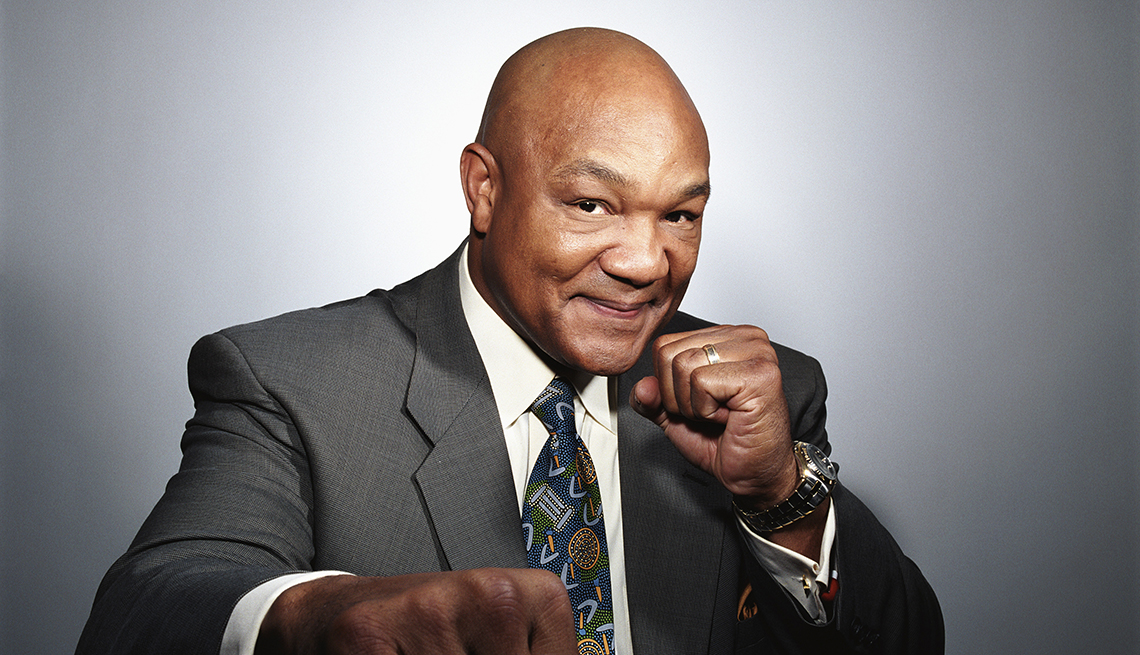Born in Marshall, Texas on January 10, 1949, George Edward Foreman made a name for himself at the 1968 Summer Olympics in Mexico City, winning a gold medal in the heavyweight boxing division. Following an exceptional career in sports, “Big George” Foreman went on to conquer the business world, making $200 million from sales of the George Foreman Grill.
In this article, we look at the former heavyweight champion of the world’s life and outstanding achievements.
Early Life
Foreman grew up in Fifth Ward, Houston, Texas. Leroy Moorehead was his biological father, but his mother remarried when he was a small child, and he was raised by J.D. Foreman.
In his autobiography, George Foreman recounts having a disturbed childhood, dropping out of school at the age of 15 and becoming involved in petty crime. Nevertheless, within a year, George Foreman had a change of heart while watching a TV ad for the Job Corps.
Foreman persuaded his parents to sign him up, enabling him to train to become a carpenter and bricklayer. After relocating to Pleasanton, California, George Foreman started to train as a boxer with the help of his supervisor.
Boxing Career
Foreman won an Olympic gold in 1968, defeating Jonas Čepulis, who was representing the Soviet Union. In fact, the Lithuanian’s face was bleeding so profusely that the referee decided to call the match in the second round. Jonas Čepulis was 10 years older than him at the time, an experienced fighter with more than 220 bouts under his belt in a 12-year-long amateur career.
Throughout his boxing career, George Foreman maintained that winning an Olympic gold medal was his proudest moment in boxing, more so than with Janine either of the heavyweight boxer’s world titles. Winning against Donald Walheim in New York City in 1969, Foreman turned professional. That year, he had 13 fights in total. He won them all, 11 by knockout.
Foreman won his first professional heavyweight championship competing against Joe Frazier in Kingston, Jamaica, in January 1973, knocking Frazier out in the second round. By this point, George Foreman had won all 40 of his professional fights, maintaining an impressive sequence of 24 consecutive knockouts.
Foreman’s winning streak finally came to an end in the infamous Rumble in the Jungle. Muhammad Ali won the fight in Kinshasa, Zaire. Foreman subsequently retired from professional sport in 1977.
Following his retirement, George Foreman moved back to his hometown and was ordained a minister. His declining income saw Foreman filing for bankruptcy in 1983. In order to regain financial stability, George Foreman had to get back in the ring.
The 39-year-old found immediate success when he made his comeback in 1987. Despite his relatively advanced age for a professional boxer and being more than 30 pounds overweight, Foreman’s fearsome punch still endured, enabling him to capture the World Boxing Association and IBF versions of the world heavyweight title by knocking out Michael Moorer in Las Vegas, Nevada, making Foreman the world’s oldest heavyweight champion in 1994.
Foreman retired from the ring for good in 1997.
Corporate Career
Having gained notoriety throughout his career in professional sports for his colorful persona, George Foreman enjoyed success as a television spokesperson for a variety of different products, the most famous being the George Foreman Grill. In fact, it earned Foreman more money than his entire boxing career.
Speaking later in life, Foreman recalled his stepfather telling him when he was young that if he learned to sell, he would never starve. As he listened to a speech by Mary Kay Ash, the founder of Mary Kay cosmetics, J.D. Foreman’s words resonated. George Foreman set his mind to becoming a salesperson, relinquishing his reputation as the most feared man in boxing to the smiling, jovial, internationally recognized character we know today.
In the wake of his astounding heavyweight championship win at the age of 45 in 1994, according to Foreman, he received phone calls night and day from companies seeking him out to endorse their products. In his autobiography Knockout Entrepreneur, Foreman explains that by shedding the tough-guy image that surrounded him for decades, he revealed a softer, more relatable side; showing people that they did not need to fear him, and that they could trust him.
Foreman has never confirmed precisely how much he earned from endorsing the grill. In 1999, Saltron Inc paid him a staggering $138 million to purchase the right to use his name. Prior to that, Foreman reportedly received approximately 40 percent of profits on each unit sold, earning him somewhere in the region of $4.5 million per month at the peak of sales. Experts guess that he probably earned somewhere in the region of $200 million from the endorsement, a sum that significantly exceeds his earnings as two-time heavyweight champion of the world.

